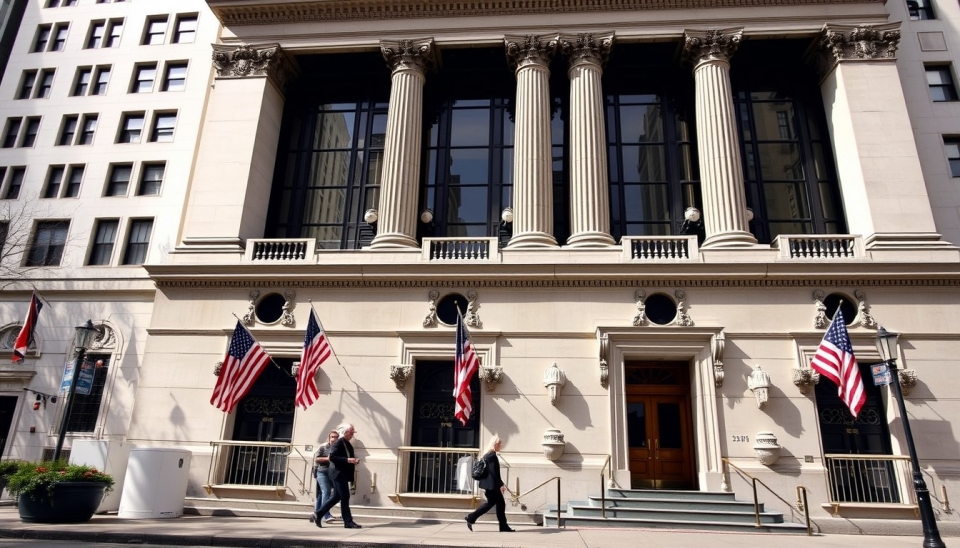
Credit Cards: Rewards on the Brink of Disappearing – Who's to Blame?
According to recent data, credit card programs offering generous rewards to their holders are facing serious challenges. Financial experts are warning that many of these programs may be reduced or even discontinued in the near future. The reasons for this shift lie in the inflation-related high costs for bankers and the overall economic pressure associated with preparing for a recession.
Continue reading
New Android Malware Can Hijack Your Calls, Including Bank Transactions
Recent research has revealed a new Android malware known as "RATDISP" that poses a significant threat to user security. This malware is capable of hijacking phone calls, creating serious risks for financial security, as criminals can utilize it to leverage call authentication methods used by many banks and financial institutions.
Continue reading
Federal Reserve Creates Policy Space in Global Economy
The Federal Reserve of the United States (Fed) is opening new opportunities for monetary policy both domestically and internationally. The latest Fed meeting concluded with interest rates remaining unchanged, providing central banks in other countries with greater maneuvering space. This decision was made against the backdrop of increasing global instability and economic uncertainty.
Continue reading
Top Global Banks Predict China Will Struggle to Hit 5% Growth Target
According to recent forecasts from leading global banks, China's economy is facing significant challenges that may result in growth falling below the targeted 5% this year. Analysis indicates that weak domestic demand and ongoing global economic issues could heavily impact the stability of the Chinese economy, raising concerns among investors and analysts.
Continue reading
China Weighs Mortgage Rate Cuts: Steps to Shield Banking System
Chinese authorities are considering reducing mortgage rates in two phases to alleviate the financial burden on borrowers while simultaneously protecting banks from potential losses. This decision comes in response to ongoing economic pressures and instability in the real estate market, undermining consumer and investor confidence.
Continue reading
Central Banks: Victory in Battle, but Defeat in War?
According to recent research and analytical conclusions, central banks, despite their successes in combating inflation, find themselves in a challenging situation that may lead to unforeseen economic consequences. In recent months, many leading central banks, including the U.S. Federal Reserve, the European Central Bank, and others, have significantly raised interest rates to deal with rising prices and alleviate inflationary pressures.
Continue reading
Swiss Franc's Surge Sparks Calls for Major Interest Rate Cuts
The recent surge of the Swiss franc has led to renewed calls for the country's central bank to consider significant cuts in interest rates. Analysts point out that the strengthening of the national currency is putting pressure on export companies and could negatively impact economic growth.
Continue reading
Oil Price Drop May Help Facilitate Monetary Easing
The recent decline in oil prices has become a crucial factor that could influence central banks’ approaches to monetary policy. The decrease in the price of black gold affects inflation, allowing central banks to consider easing their measures. Oil has lost more than 20% of its value since the beginning of summer 2023, and this decline is worth discussing in the context of global economic trends.
Continue reading
A New Geopolitical Landscape: Banking Negotiators Change the Rules in the Oil Industry
Recent changes in the oil market and the financial industry show how banking teams are rapidly altering their approaches to oil and gas deals. It seems that the old presentations based on traditional methods are becoming a thing of the past, as new players offer more flexible and market-oriented strategies. This is a completely new landscape where major structures and new actors are trying to adapt to changing economic realities and rising geopolitical tensions.
Continue reading
US Regulators Cut Proposed Capital Hike for Big Banks in Half
Recent changes in the regulation of the US banking sector have resulted in a halving of the proposed capital increase for the largest financial institutions. Regulators, recognizing the need to maintain economic stability, have decided to optimize capital requirements, eliciting mixed reactions within the financial community.
Continue reading